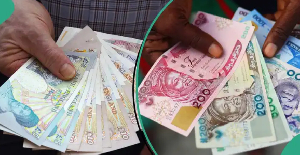As in recent years, stocks are having their moment in Nigeria. Yet the optimism that fed that trend in 2022 was unusually robust for a year in which that had enough wrecking balls to tip Nigerian stocks southward.
Returning 20 per cent or N4.7 trillion at the sound of the closing bell on Lagos Customs Street on Friday, Nigeria’s main equity index had swum against the trend in the broader global stock market, where equities had shed as much as $18 trillion or over 20 per cent as of 07:00 the same day, according to the MSCI All-Country World Index (ACWI).
MSCI ACWI tracks the performance of roughly 3000 stocks in 48 developed and emerging market countries.
The yield for 2022 compares with that of last year, when Nigerian stocks delivered 6.1 per cent or N471 billion. It is now at least three years in a row that the Nigerian equity market will post positive returns, the biggest being 2020, when it yielded over 50 per cent as the best performing stock index in the world, according to Bloomberg ranking.
Investors’ ferocious appetite for stocks took a new turn during the year, catapulting the main equity index to 54,085.3 on 27th May; that was the pinnacle the market had reached in almost 14 years.
That the Nigerian stock market had a remarkable outing in the year Bloomberg described as the “worst for stocks and bonds in more and decade” seems to be a testament to its potential to withstand fiercely stormy days and muster domestic participation at a time the inflow of foreign investors dollars has thinned to a mere trickle.
Foreign participation in the market has been on an implacable decline since 2018, when foreigners constituted 50.7 per cent of the total transaction value. That proportion fell to as low as 16.7 per cent in the year to November, according to data from the Domestic & Foreign Portfolio Investment Report of Nigerian Exchange (NGX) Limited.
Nigeria’s foreign portfolio investment was as high as 57.5 per cent in 2014, but the bugbear of dollar scarcity has been keeping international investors at bay from the market in recent years as they fear the country’s forex crisis could make their investments difficult to redeem. But that is just one aspect of the problem.
Analyts say the refusal of the NGX and stock market watchdog the Securities and Exchange Commission to review the free float rule so as to reduce directors’ shareholding in companies while increasing the proportion of regularly traded shares as a PREMIUM TIMES’ report highlighted last year continues to stand in the way of foreign participation in the market.
Institutional investors often desist from putting their money in stocks with a small free float because they are typically volatile.
With Nigeria heading to the polls in February, portfolio investors from overseas are cautious of ploughing their money in Africa’s largest economy to avert uncertainty.
If there were a number of put-offs for foreign investors during the year, there is a sense that involvement of local players in equity trading is expanding, with 83.3 per cent of the total trade for the year executed by Nigerians. But it is worrisome that the gulf between retail investors’ participation and that of institutional investors continued to widen. At N1.2 trillion, the latter contributed more than twice their retail counterparts accounted for.
There were other turbulent moments for equities during the year and that Nigerian stocks were able to buck these trends is a miracle.
Perhaps the most formidable threat to shares in 2022 were the four consecutive hikes in the benchmark interest rates by the Central Bank of Nigeria, marking the country’s longest unbroken cycle of monetary tightening in a decade and a year.
That aggressive adjustment saw the apex bank scale up rates by 500 basis points in an unorthodox move towards curbing the country’s inflation, one of the five central banks on the continent that have increased borrowing costs by at least 5 percentage points.
Portfolio managers often move funds from stocks into the fixed income market, where yields usually get more attractive after upward rates adjustment.
But Africa’s second largest stock exchange, in a rare invincibility, rode through the storm. The Oil & Gas Index emerged the best performing of the five sector indexes tracked by the bourse, gaining 34.7 per cent. On the contrary, the Insurance Index was the runt of the litter, posting a negative return of -0.06 per cent.
NGX 30, the index that tracks the top 30 stocks of the 157 listed on the bourse in terms of liquidity and market capitalisation, returned 9.8 per cent
Top 5 performing stocks
Multiverse Mining and Exploration: 1,890%
Wema: 442%
Meyer: 393%
Academy P: 158%
Champion: 134%
Bottom 5 performing stocks
Regal Insurance: 51%
Livestock Feeds: 49.3%
Global Specturm Energy: 40.8%
Sunu Assurance: 35.6%
University Press: 35.4%
Business News of Friday, 30 December 2022
Source: www.premiumtimesng.com













